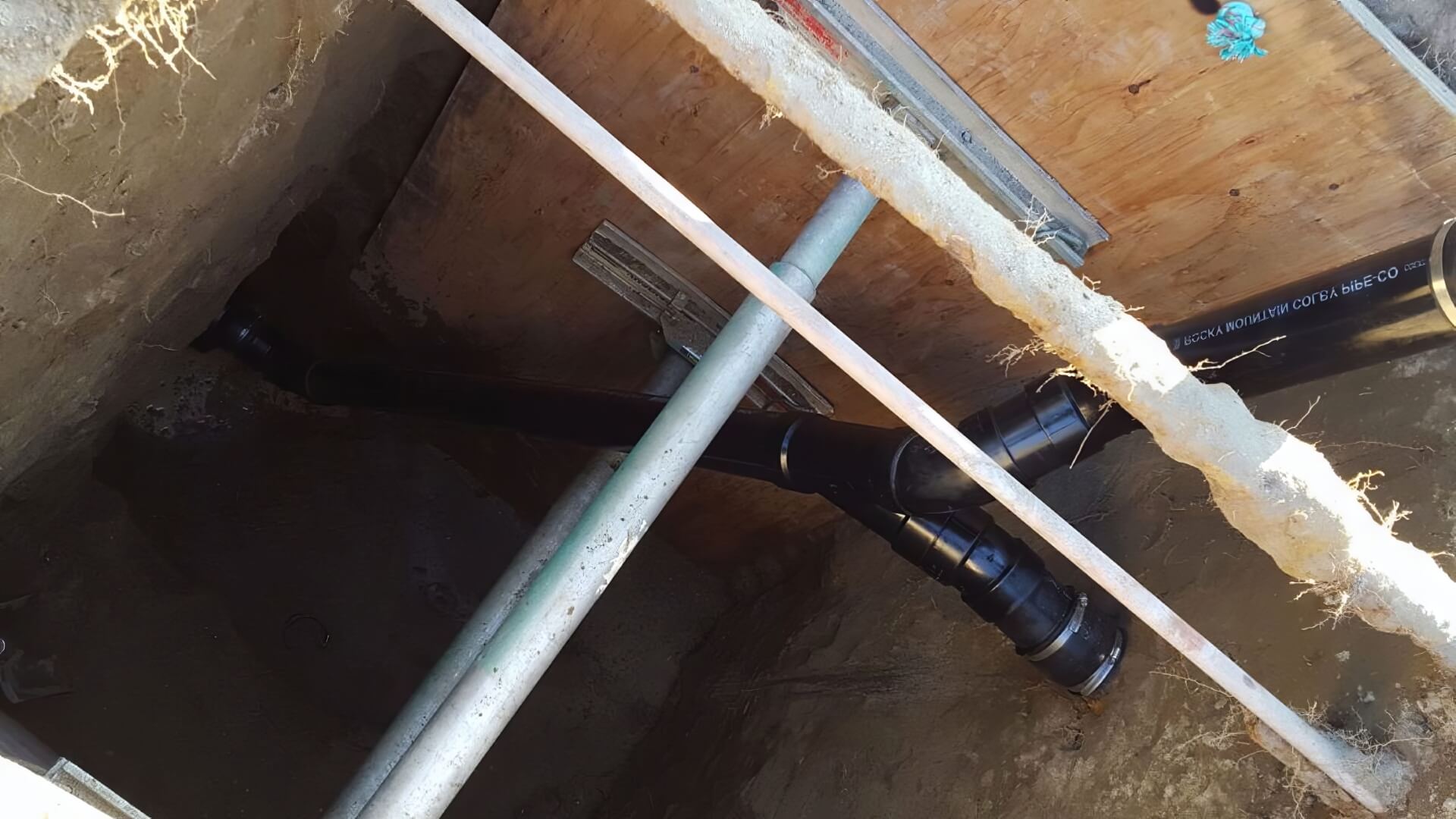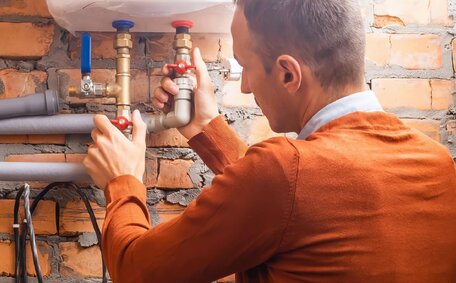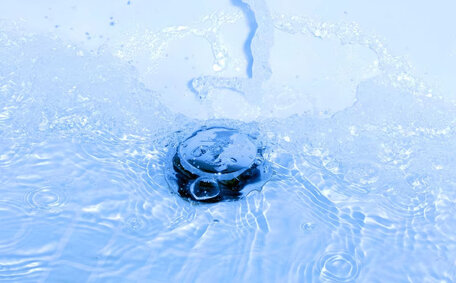How Blocked Drains Can Lead to Pipe Leaks
Multiple factors from clogged drains can contribute to pipe leaks.
Accumulated debris, grease, hair and other items can constrict the diameter of pipes. This restriction halts proper water flow, leading to increased pressure on pipe walls. The excess pressure can corrode and weaken pipes, which causes them to become more prone to cracks and leaks.
A clogged shower drain can cause water to back up and pool, leading to undue pressure on your home’s piping systems. In these moist environments, bacteria can thrive, leading to the corrosion of your pipes caused by a clogged drain. Their corrosive byproducts further degrade pipes, heightening the risk of bursts and contamination. This issue can result in rapid wear and tear, potentially compromising your plumbing system’s structural integrity.
Moreover, serious blockages can cause backflow, pushing water into your home through various outlets.
Protecting your drainage from blockages is essential to prevent damage to your plumbing system.
Prompt action to clear minor blockages can prevent leaks, floods, and associated water damage.
Common Causes of Drain Blockages
Identifying the most common culprits behind clogged drains is crucial:
- Hair buildup - Strands of hair that wash down drains can catch on pipes and accumulate, restricting the ability for water to flow through.
- Food items - Fats, oils and scraps from food often stick to drain walls, solidifying into clogs.
- Soap residue - Soap scum and shampoo deposits left behind in sinks/tubs can accumulate.
- Small objects - Things like hair pins slipping down the drain can snag and block water.
- Tree roots - Exterior drainage pipes might be compromised by root overgrowth, as these pests can significantly constrict water flow.
Proactive steps can prevent blockages and maintain your home’s drainage efficiency. Use drain catchers, avoid flushing solids down toilets, and pour grease into the trash after cooking instead of the sink drain. To ensure the longevity of your plumbing, make sure to regularly contract professionals for cleaning to clear roots and debris from your homes piping systems.
Consequences of Ignoring Clogged Drains
Ignoring the detrimental consequences of blocked drains can be disastrous for your plumbing, property, and health. Plumbing emergencies from blocked drains can cause standing water buildup and floods in your fixtures. Such stagnant water enables mould and bacteria growth, posing a risk of serious health consequences for your household.
Blocked drains can cause both low water pressure and increased pressure on pipes, presenting a dual challenge. Blocked drainage can lead to leaks and the eventual bursting of pipes, affecting your plumbing fixtures and joints. Leak-induced water can seep into walls and floors, damaging structures and fostering mould that impairs air quality.
It is vital to address situations promptly where water gets backed up due to a blockage. Continued use of fixtures while drains are blocked worsens backflow and amplifies the risk of leaks. Floods and property damage from water saturation can lead to structural damage requiring expensive repairs.
Contaminated water and mould may endanger your family with skin infections and respiratory illnesses. Facing gurgling sink/tub drains, an unpleasant smell, or moist areas on walls may necessitate a call us for professional plumbing assistance to prevent major damage.
Tips to Prevent Drain Blockages
Maintaining clear drains relies on regular and straightforward maintenance. Avoid pouring fats/oils down drains - these solidify into clogs.
Sink strainers efficiently catch food and hair, preventing clogs. Flushing pipes with very hot water, around 82°C, helps dissolve grease deposits.
Monthly use of natural drain cleaners such as baking soda and vinegar disintegrates soap scum and residue. Monthly use of enzyme-based cleaners can break down organic waste. Outside, ensure downspouts direct rainwater away from foundations where tree roots could invade pipes.
To prevent clogs, avoid flushing debris down toilets and limit them to human waste and toilet paper only. For bathtubs, employing drain catchers and clearing trapped hair post-bath or shower safeguards your water flow.
While DIY maintenance is beneficial, calling a local plumber for biannual professional drain cleaning with high-pressure water jets or augers can remove persistent obstructions.
When to Call a Professional Plumber
Enlist professional help for stubborn blockages that threaten your plumbing, signaled by water damage, sewage backflow, or foul smells.
Our Ryde Plumbing experts have prepared a guide for recognizing urgent plumbing issues:
- Total blockages that lead to water pipe complications, which, if not fixed by augering, hot-water flushing, or enzymatic treatments, require a local plumber’s expertise.
- Significant backups of water/sewage into sinks, bathtubs, shower stalls or toilets
- Strong sewage gas smells that can get through your drains
- Visible water damage from leaks causing flooded areas, moisture on walls/ceilings or mould growth
- Low water pressure or pipes making banging/hammering noises signalling loss of water flow
Address issues through professional drainage inspections using camera surveys and hydrojet flushing. Tree root invasion, pipe corrosion/cracks or misaligned joints often need repair.
Ryde Plumbing offers reliable solutions for complex blockage issues on your property. Contact us 24/7 on 1300 349 338 or email [email protected] to book an urgent appointment. Our team of adept plumbing professionals provides top-tier plumbing services in Ryde along with the adjacent areas.






